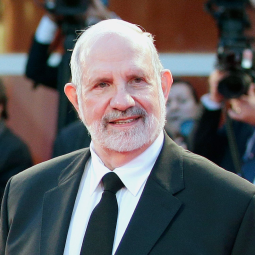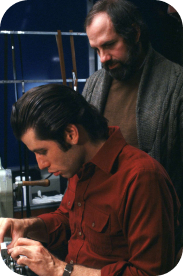A look back at the history of a renowned director: Brian De Palma
“I don't see scarey films. I certainly wouldn't go see my films.” Brian De Palma

Brian De Palma
Publié par Matthis Boreaniz (Montbéliard) le 24/10/2023
Lecture : 5 minutes
Brian De Palma, an iconic figure in American cinema, is renowned for his remarkable ability to weave compelling stories that push the boundaries of the cinematic form. Born on 11 September 1940 in Newark, New Jersey, he is the son of Piper De Palma and Lolita De Palma. He has built an impressive filmography by skillfully fusing suspense, visual aesthetics, and provocative storytelling, leaving an indelible mark on the landscape of modern filmmaking.
A promising start to a career
From the outset of his career, De Palma captivated audiences with groundbreaking films such as "Sisters" (1973) and "Phantom of the Paradise" (1974), which showcased his affinity for intricate narratives and characters endowed with subtle shades of complexity. His critical triumph with "Carrie" (1976), an adaptation of Stephen King's novel, solidified his status as a visionary director capable of seamlessly blending elements of horror and psychological drama, thereby enthralling a global audience and earning him enduring recognition.

Great actors for Great movies
De Palma's collaborations with renowned actors, notably his work with the legendary Al Pacino in "Scarface" (1983) and "Carlito's Way" (1993), as well as with Robert De Niro in "The Untouchables" (1987), exemplify his skillful direction that brings a depth and authenticity to his characters, elevating his films to an unparalleled level of cinematic excellence. His distinctive ability to elicit intense performances from his actors and to infuse his narratives with a sense of emotional realism has solidified his reputation as a maestro of the craft.
a mastery of technique and atmosphere
n addition to his directorial prowess, De Palma is celebrated for his technical virtuosity, as evidenced by his meticulous use of complex sequence shots and innovative camera angles, all of which contribute to the heightened emotional impact of pivotal moments within his films. His meticulous attention to visual detail, combined with his bold thematic explorations, imbues his works with a visual allure that lingers in the minds of audiences long after the credits have rolled.

A controversial film director
However, even amidst his celebrated achievements, De Palma has faced criticism for his bold and sometimes controversial portrayal of violence and sexuality, igniting conversations about the delicate balance between artistic expression and sensationalism. Some have challenged his inclination to delve into the darkest recesses of the human experience, prompting discussions about the ethical boundaries of cinematic representation. Nevertheless, De Palma's enduring legacy in the film industry remains an undeniable testament to his unparalleled contributions to the art of storytelling. His unyielding commitment to exploring the complexities of the human psyche continues to captivate cinephiles worldwide, solidifying his position as a preeminent architect of cinematic suspense and an enduring source of inspiration for aspiring filmmakers seeking to chart new frontiers in the realm of visual storytelling.
Matthis Boreaniz MMI1/B1 : matthis.boreaniz@edu.univ-fcomte.fr
